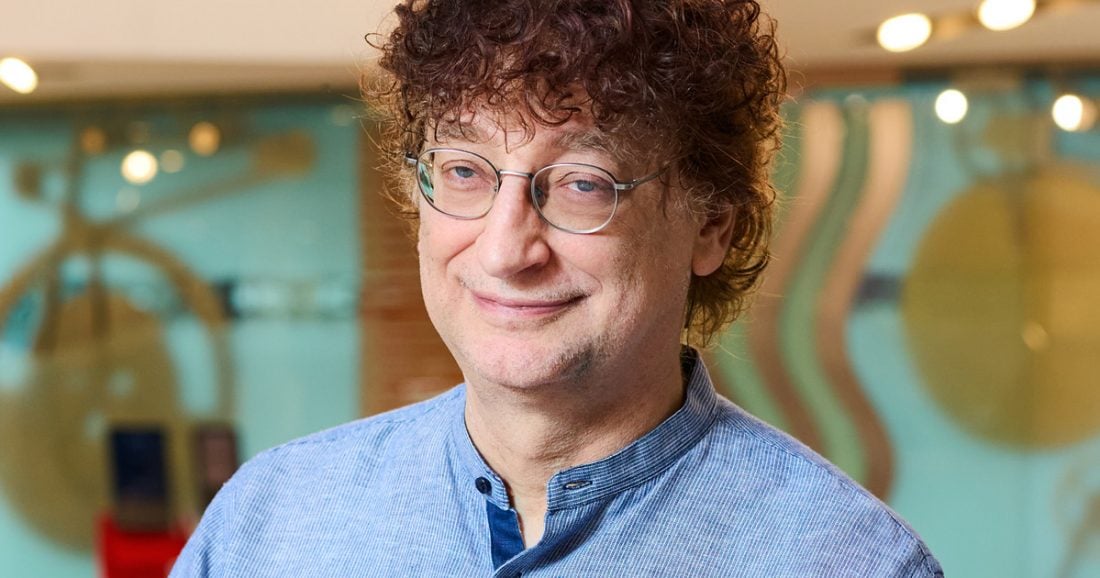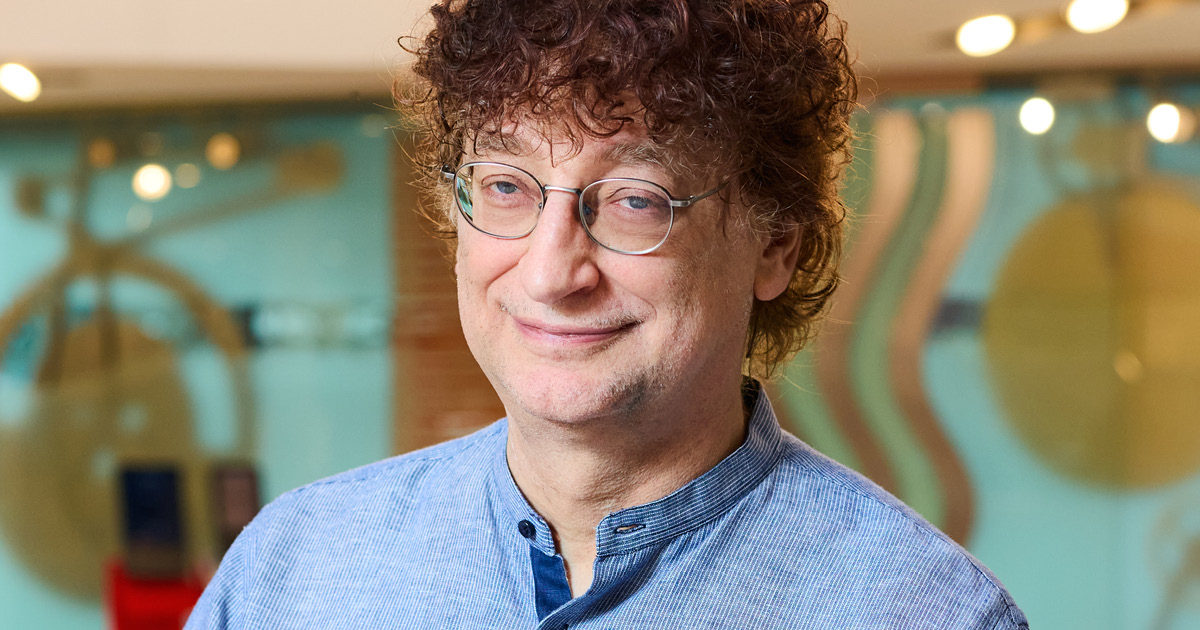On a recent flight from Zurich to New York, Claudio Hintermann watched the newly released film Blackberry, a comedy-documentary charting the meteoric rise and dizzying fall of the pioneering smartphone company.
One statistic in particular stuck firmly in his mind.
“At one point, Blackberry had more than 50 percent of the market share,” he tells The CEO Magazine. “Now, the company has zero.”
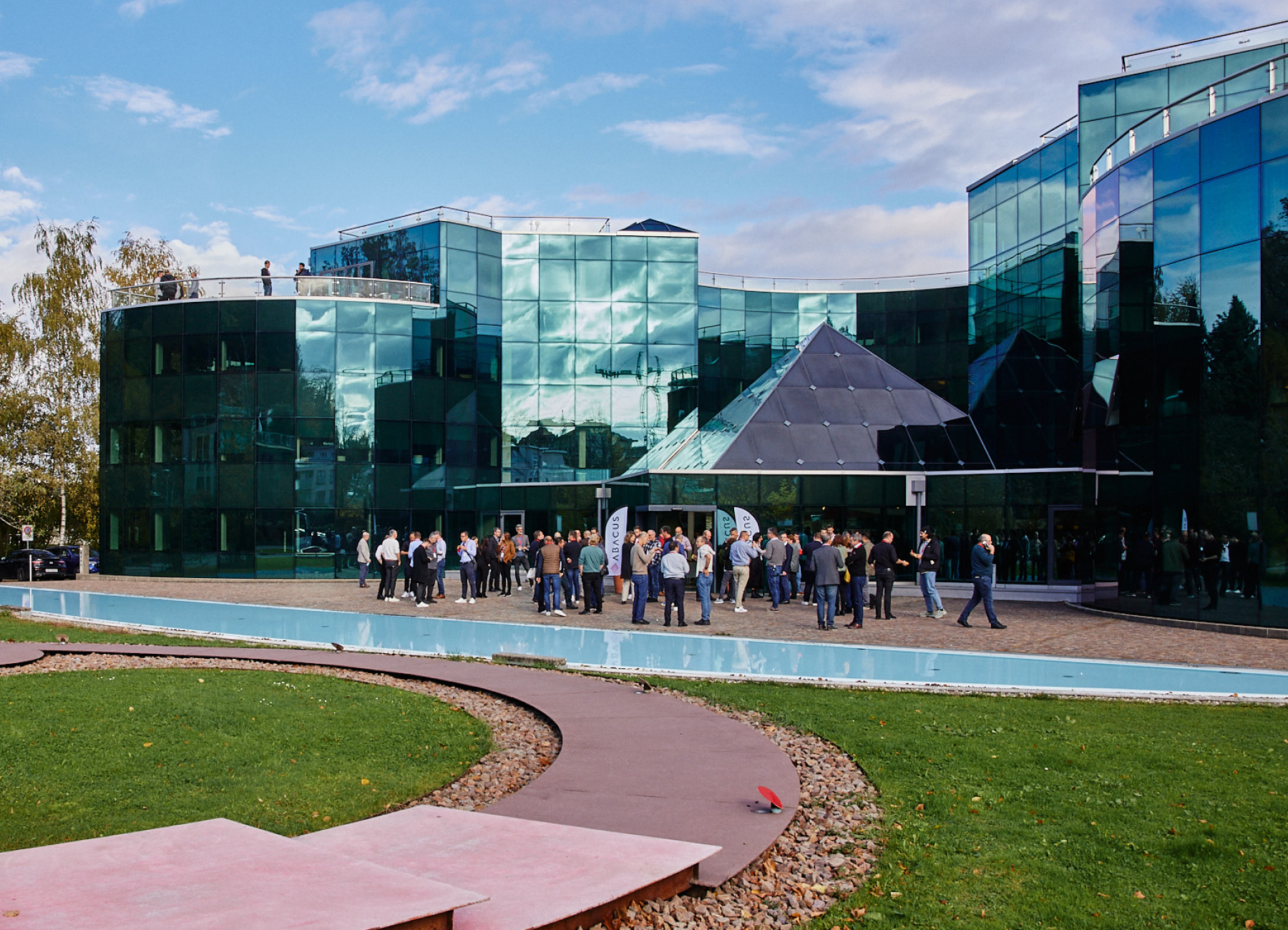
“Being successful is a snapshot of the moment.”
He tucked away that nugget of information to use the next time he and his team at Abacus Research gathered together. “I wanted to share this example with them so people understand that there is nothing secure in what we’re doing,” he continues.
“It’s mind-blowing, but when you go into tech, it’s also very common. There are many brand name companies that no one knows anymore because they haven’t evolved with the times.”
In collaboration with
FairCom

In collaboration with
Artificialy

Abacus’ figures tell the story of a company in its prime: 65,000 satisfied customers, 900 engaged employees and approaching 40 years of proudly Swiss-made enterprise resource planning (ERP) software solutions. “The company’s doing very well,” acknowledges Hintermann, the Co-Founder and Co-CEO. “But being successful is a snapshot of the moment, it doesn’t mean you’re going to survive.”
Particularly when your playing field is one as fast-moving as the software industry.
“The software industry never stops,” he says. “You always need a long-term plan, because whatever you’re doing now is going to be old when you ship it.”
Organic Growth
Hintermann admits a long-term plan was the one thing lacking when he and two fellow classmates at the University of St.Gallen decided they wanted to “do something together”. “We started trying to sell squash rackets but it didn’t go so well,” he explains with a grin.
Far from discouraged by their first entrepreneurial attempt, the students soon spotted their next opportunity when Hintermann, who was studying marketing, picked up a job in a computer store. “We were finance and marketing guys who started to program, thinking we could do it better than others, as you do at that age,” he says.
The year was 1985 and the trio were onto something. “At that time, the base problem was that the financial software on the market was built by engineers. That meant the customer had problems understanding the software,” he explains.
Because they were coming from the customer side, they knew exactly what an accountant wanted to see on the screen. “So, even if our software wasn’t technologically the best in the world, people understood it,” he said.
Now, tens of thousands of predominantly Swiss small and medium-size enterprises (SMEs) across the construction, services, real estate and public administration industry turn to Abacus for business software. Its application spans administration and sales, production and services, human resources management and finance.

“We’re just in for the fun, to have very bright people shaping the future.”
The business model is to sell indirectly through a stable of key sales partners, many of which are in the auditing space. “We always say we’re a research company; we build the software and our partners are the people who sell it,” he says.
Hintermann says he and his co-founders have never been motivated by financial rewards. “There was never a plan to grow the company to this size,” he says. “At the beginning, we didn’t want to go beyond 20 people, because we said if we did, we would lose the family structure.”
But they soon became so busy that they had to bring in a few more people. “Never did we dream we’d get close to 900 employees – we probably wouldn’t have done this venture if we thought we would,” he continues.
In fact, he describes himself and his co-founders as just ‘regular people’ who have learned that key to success lies in who you employ. “We don’t want to lose money, but we don’t really care how much we’re making. We’re just in for the fun, to have very bright people shaping the future.”
Last of its Kind
This attitude has proven to be the secret sauce for longevity because, when Hintermann looks around for the peers Abacus grew up with in the Swiss software industry, he sees nothing but empty space. “It’s just a cemetery,” he says. “I think we’re the only remaining relevant privately-owned corporation in the ERP field.”
The others, up to 60 in the last four years alone he says, have sold out. Along the way, he adds, they’ve stopped being relevant. “They have been swallowed up into private equity or global software companies,” he continues. “For us, being the last ones standing is quite an achievement.”
Because money has never been the main driver at Abacus, there’s never been the desire to cash in on short-term access, a temptation he says other tech firms in the country have succumbed to.
“When we first started it was microcomputing, then it was local area networks (LANs) and then the internet. You can never stop, you’re always looking for the next thing you have to do, and when you have to build a new technology space, it’s very expensive,” he says.
Those who sell out don’t have to constantly try to be ahead of the curve, he continues. “They can stay on one technology and maximize their profit,” he says. “But, when the next technology wave comes they don’t have the money to challenge.”
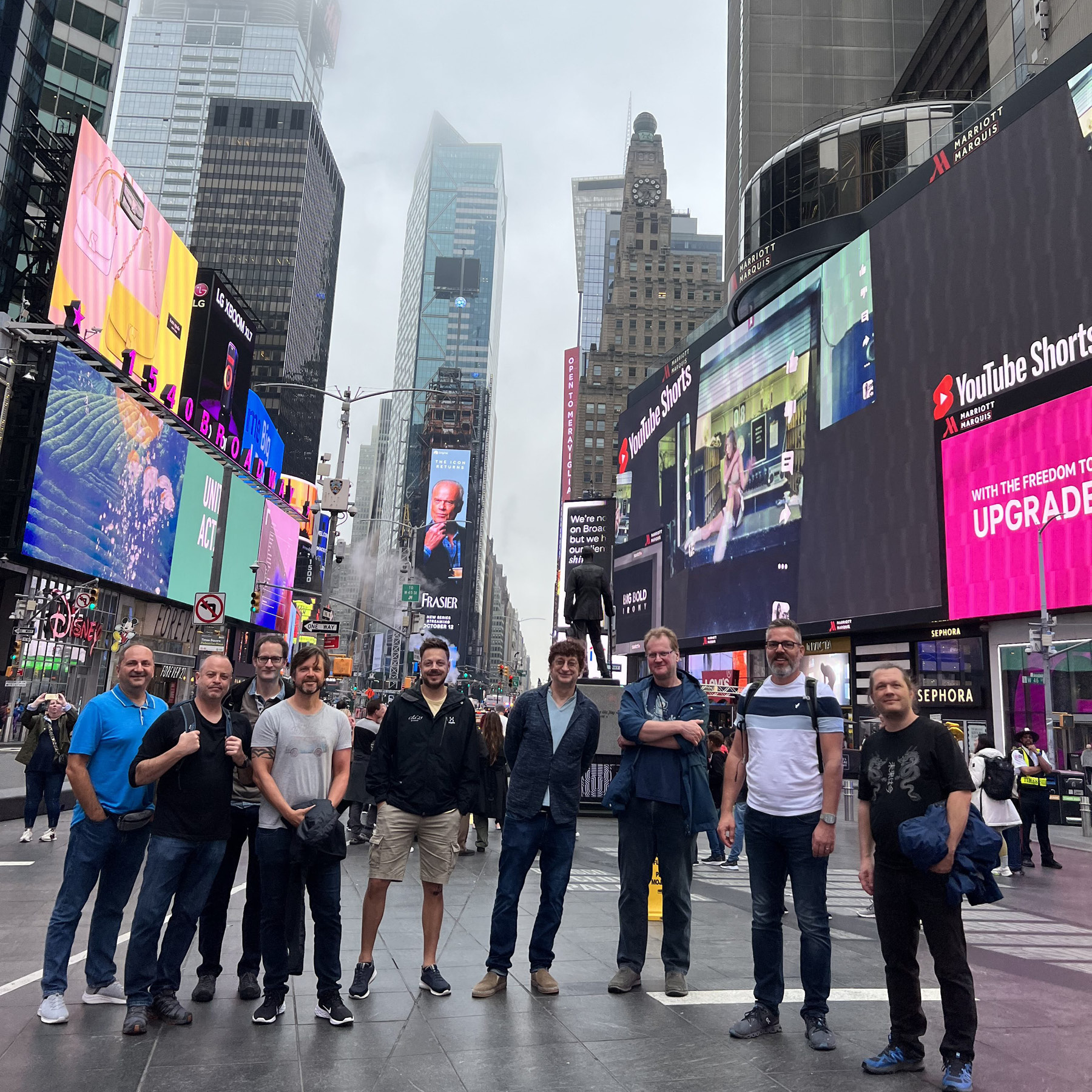
“You need a department of freethinkers where you can throw away 90 percent of the ideas, but the remaining 10 percent are the future.”
Along with the support of key partners such as FairCom, leaders in database technology, Abacus stays one step ahead thanks to its R&D department, which is solely dedicated to innovating the next generation of software.
“It’s a group that doesn’t look at the present product, instead they look at what’s going to be the product range in five or ten years,” he says. “You need a department of freethinkers where you can throw away 90 percent of the ideas, but the remaining 10 percent are the future.”
He likes to call this division digital scouts and says it is critical to the success of the business. “If you don’t have those people, you jeopardize your future because you don’t see what’s coming,” he says.
Out of all the big players in the Swiss market, Abacus is the only company to have always made a R&D department such a priority.
He shares that, when ChatGPT launched, Abacus built a whole R&D team just scratch, entirely dedicated to large language models (LLMs). Hintermann understands the crucial importance of this team of ‘digital scouts’, and therefore provides it with the financial backing it requires.
“We know we need them to allow us to find the path forward,” he says. “They are free to be open-minded and that, in turn, shows us things we were not expecting.”
For Hintermann, this constant investment in technology is a non-negotiable in the business, even if it’s an expense he finds himself regularly justifying to investors. “Because we’re cutting into present profits, your company always appears less profitable than others,” he says.
Serve and Volley
Hintermann explains that the reason the Abacus founding trio started out selling squash equipment was down to a meeting with the famous Khan squash dynasty when he was in London to learn English. “So we tried it, because at the end of the day we just wanted to do something together, and it didn’t work at all,” he recalls. “We didn’t sell anywhere near what we wanted.”
At the time, Hintermann was a keen squash player but today prefers swimming. “I swim every day, and can do it from home,” he says. “With squash, you have to always find someone to play with you.”
Artists and Amplifiers
Although the breakneck pace of innovation may tire many of his peers, especially considering that he’s spent his entire career building up Abacus, Hintermann wouldn’t have it any other way.
“I need change,” he acknowledges. “I’m not a very good manager for an organization that doesn’t move, I would be the wrong person to do that. I need to be in charge of a company that constantly fights to be number one in the market.”

“I need to be in charge of a company that constantly fights to be number one in the market.”
Although Hintermann programmed the first version of Abacus Module, its modular, customizable ERP solution himself, he says he’s much more of a coach today. “I’m nowhere near as good as the programmers we have now,” he laughs. “So we try to give them an environment where they can be successful and showcase their skills.”
He compares his role to a conductor in an orchestra, nurturing his talented team to have a laser-like focus on its audience. “Even if you’re the greatest violin player in the world, people will only listen if you’re playing the music that they want to hear,” he says.
The leadership, he adds, are amplifiers – and the programmers, the artists producing what their clients want. “We give them the amplifier that their composition needs to be successful,” he says. “But we need good artists. If you have a very good artist, then it’s easy to be an amplifier. If you’re a bad artist, you can have a great amplifier, but no-one is interested in it.”
The AI Game Changer
Understandably, AI is currently the core focus for Hintermann and his team. He foresees AI as having a monumental social impact, so much so that he compares it to the Renaissance.
“I’ve never seen something so dramatic that changes all the aspects of our life,” he explains. Along with hiring its first CAIO, or Chief Artificial Intelligence Officer, to ensure AI becomes entrenched in the mindset of the C-suite, the business is also adapting its software solutions.
Efforts have accelerated in the last year or so, with the breakthrough of LLMs. “Programming is like translating,” he says. “And, if AI LLMs are good at translating sentences, they can also translate computer programs.”

“I’ve never seen something so dramatic that changes all the aspects of our life.”
“Over 70 percent of ERP programs are reports, and we would like for it to become as easy to communicate with your computer system as with ChatGPT to ask and receive data. It’s going to be a game changer,” he explains.
Of course, plenty of questions are swirling around about security, particularly for cloud-based LLMs. “We have financial data corporations among our users, so we are very security minded. It’s crucial that data stays in the hands of the right people,” he says.
That’s why partnerships with startups like Artificialy, a derivative of the University of Lugano, are so important. “It has a whole team working on local AI versions that are not in the cloud and we’re intensifying our work with them to integrate AI in different steps in our software,” he continues.
Staying Vigilant
With one eye on AI, Hintermann explains that his other focus is on efficiency. This is because Abacus finds itself in a situation where its success has come at the expense of efficiency. “It’s very challenging, because when a company is doing well, people stop checking efficiency,” he explains.
After all, when business is bad, efficiency – whether in terms of staffing or processes – becomes front of mind. “When business is good, everyone has a different mindset,” he continues. “People say, ‘We can afford this, or we can send two people to do a job that one person could easily do’.”
It’s a place where, he cautions, you have to be the most careful of all. “I think this is a challenge every successful company faces,” he says. “How do you not lay down on your success, but instead figure out what you are doing wrong now.
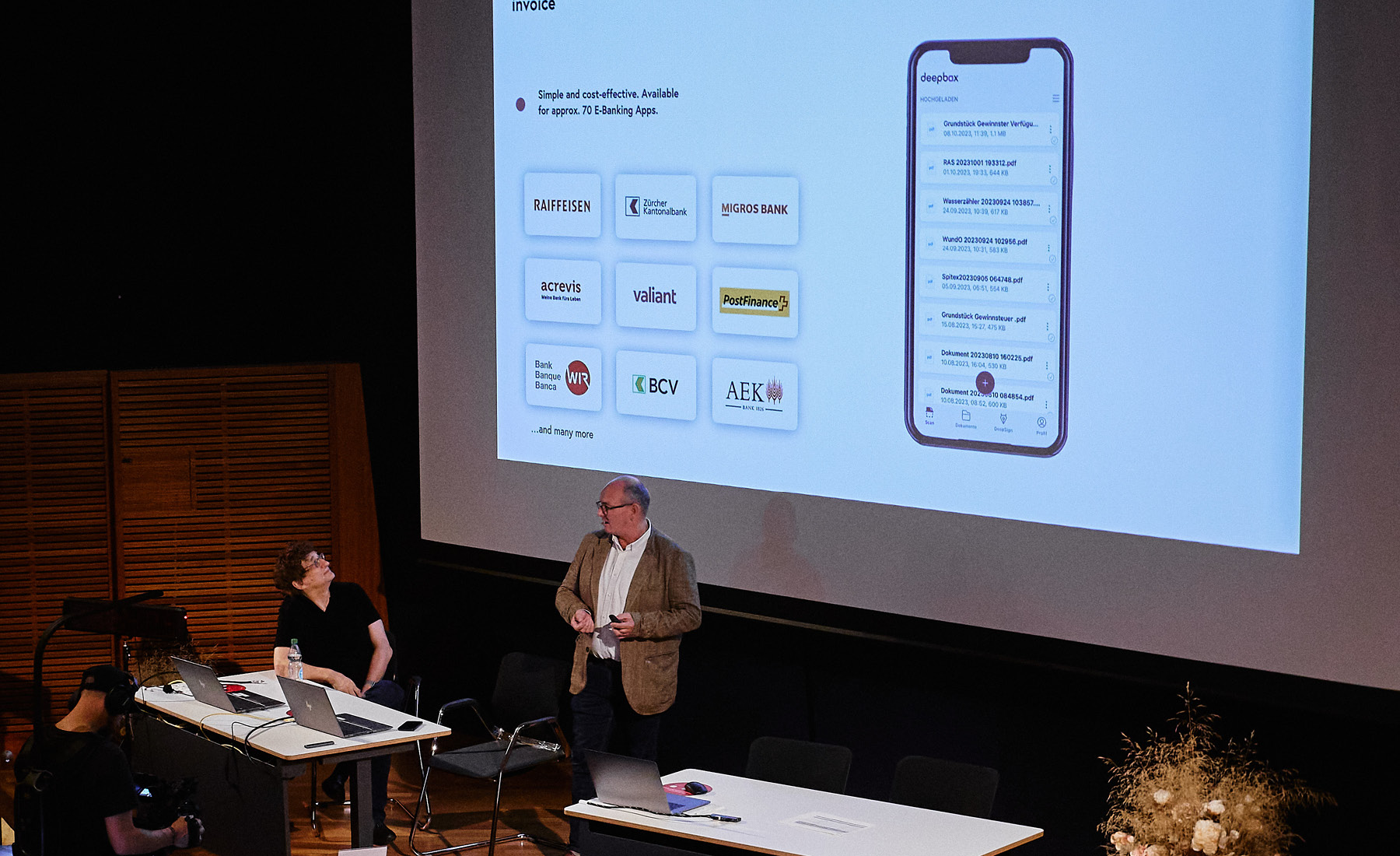
“When a company is doing well, people stop checking efficiency.”
“You have to be a little paranoid, like Andy Grove [ex-CEO of Intel] said. Because the competition is still there. Success in one time period does not guarantee success in the next five years. It’s an endless fight.”
Looking forward, Hintermann says strategy is dictated by what is best for the market rather than by the bottom line. And AI might mean the company shrinks to fit into a new definition of efficiency. “I cannot say that, maybe in two years, Abacus won’t be a little bit smaller,” he admits. “We have absolutely no problem with that. We’re not in it for the money, we’re in it for the game.”
But he can say with certainty that it will never follow the path of those folded into another business. “Abacus cannot become a part of a larger corporation, because it would lose its culture,” he says. “It was never built to be bought, it was always built to be independent and have its own character.
“And that’s the future of the company, otherwise that spirit is not going to survive.”
The Spin-Off
Three years ago, Abacus launched a spin-off called DeepCloud. A platform for digital services, its solutions can digitalize any work process. “We spun off this operation as we realized we needed a different structure to do it,” explains Hintermann. “We are using our programs in a different structure to create a platform that our competitors are also doing.”
This separate structure has driven more success than if it had remained within the Abacus framework. “It brings a different mindset and a different point of view,” he says.

